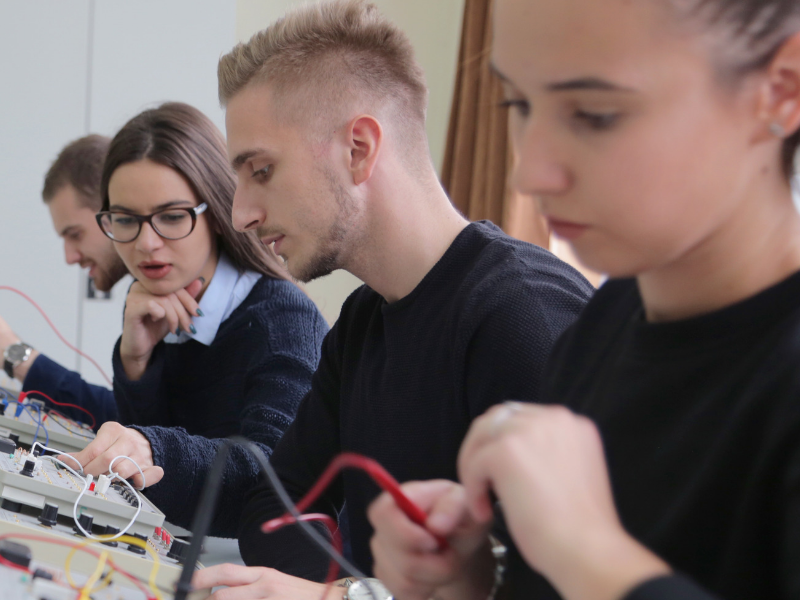Georgia’s public-school teachers should be proud of the work they’ve done to raise graduation rates in our state. Since 2011, graduation rates have increased by more than 14 percent, with 81.6 percent of the class of 2018 graduating. It’s an improvement that has moved Georgia, mercifully, out of the bottom tier of states. This is no small achievement and marks a dramatic improvement in the opportunities and prospects for the students who would not have graduated otherwise.
But graduating high school is not enough to ensure that our students succeed as they launch into the critical first years of their adult life. While college attendance is an important next step for many Georgia students, it’s not the route that most take.
According to a recent study from the University of Pennsylvania, only 31 percent of 18-24-year-olds in Georgia are in college. Of those who do attend college, completion isn’t guaranteed. According to research from the Georgia Governor’s Office for Student Achievement, only 27 percent of the class of 2012 (the most recent year available) had a bachelor’s degree, associate’s degree, or certificate five years after graduating from high school.
And then there’s the large number of young adults in the state who are still trying to find their way years after high school. According to the Annie E. Casey Foundation, in 2017 Georgia had 123,000 young adults aged 20-24 who were neither in school nor working. That’s nearly one in five people in that age group.
So, if nearly 70 percent of students are not going to college and a very high percentage are still floundering into their early 20s, what’s the solution for helping them find a path to a rewarding, self-supporting career?
An important answer, according to Dr. Robert Lerman of the Urban Institute, is apprenticeships—where students start working while high school juniors and seniors in fields that lead to credentials and, importantly, careers immediately after graduation. Dr. Lerman’s work researching apprenticeships spans decades and covers most of the globe. His research has shown that apprenticing is one of (if not the most) effective way to ensure that students who are not college bound find their way into a well-paying, sustainable career.
In the last two years, GCO has worked with Dr. Lerman to research the role of apprenticeships in Georgia and to provide recommendations on how to expand an already well-structured program into one that meets student demand.
Dr. Lerman’s most recent report, released just this week, focuses on Georgia’s Youth Apprenticeship program, created in the mid 1990s with fewer than 400 student participants. Today, the program has grown to more than 3,000 students in nearly 350 schools across the state. State funding of the program is relatively modest at $3 million annually and mostly funds program coordinators who oversee student participation and work to attract businesses to offer apprenticeship opportunities.
According to the report, demand for apprenticeships of this kind is high in Georgia. Dr. Lerman has estimated elsewhere that Georgia needs nearly 100,000 apprenticeships in order to meet that demand. Why hasn’t apprenticeship availability kept pace with student demand, according to Dr. Lerman? Based on interviews and surveys of program coordinators, the primary answer is that companies are skittish to offer jobs to high school students. This is due to the fear of liability for such young workers and related costs.
But, according to Dr. Lerman, these fears are largely unfounded and based on inaccurate assumptions about what the law requires and the cost of hiring younger workers. He cites Southwire as a prime example of a company that has successfully embraced apprenticeships since the 1990s and now employs more than 300 students. And Southwire has intentionally sought out students who are known to be at risk of falling into poverty and suffering from related issues, complexities not faced by the majority of students who would seek apprenticeship opportunities.
For the companies that are currently providing apprenticeships, Dr. Lerman points to regular reports of high levels of satisfaction (more than 90 percent) as a reason to be optimistic that, with accurate information and an opportunity to participate, more companies can be convinced to join the effort.
And, at GCO, we believe now is the perfect time to expand apprenticeships in Georgia. As the chart below demonstrates, the job market is tight in a way that hasn’t been seen for nearly two decades, with more job openings than job seekers. Surely now is the time to scale up apprenticeships to create a pathway from high school to work for those hundreds of thousands of students and young adults in our state who are not college-bound but are full of potential and have great things to offer to any company willing to take a chance on them. We owe it to them to make it happen. 






